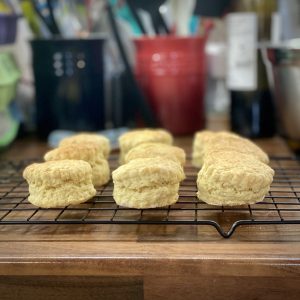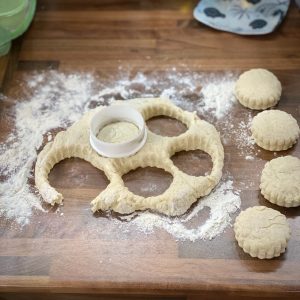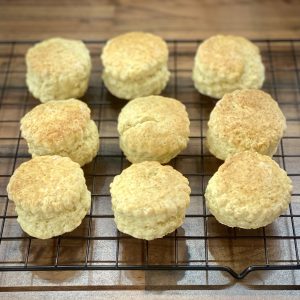 Cooking
Cooking
A Strange New Normal (with Scones)
It’s been a while since I posted. January and February passed by in a blur, it was the busiest term at school. The term when we have to get all the Year 11 pupils to finish the coursework they’ve been working on for a year. The coursework that is worth 50% of their GSCE grade. It was lots of late nights and feeling stressed.
Then March arrived, we all started becoming more and more worried about this new virus that was starting to spread. Before we knew its, pupils and staff were self-isolating and then in a blur school was closed down and we were working from home.
It’s been a very strange spring term. By now I’ve already taught remotely for a week and started my Easter holidays. I also haven’t left my flat for 2 weeks.
My days are now filled with creating tutorials for stressed teachers trying to teach online (for many a new scary place), crafting (I’ll do a post about my quarantine quilt), keeping my autistic, depressed teenager calm and fed (more stressful than you think it’s going to be) and baking basics.
So far in my basic food baking adventure, I have made:
- Bread (white, with a soft crust – very specific instructions from said teenager)
- Pitta Bread (which I will try and post about at some point)
- Scones
Today I thought I would share my very basic completely dairy-free scone recipe.

Now the trick to a good scone is to touch it as little as possible and to eat them as soon as possible!
It has 3 basic stages:
- Rub together the flour and fat, using the tips of your fingers until it resembles bread crumbs. If you have naturally hot hands (which I do not!) then you might want to wash them in cold water first, just make sure you dry them really well.
- Mix in cold milk, using a table knife – so you don’t touch it with your warm hands!
- Very briefly knead it before gently squishing it and then cutting out rounds with a cutter.

By minimising touching and keeping things cool, you should end up with crumbly soft scones.
Back when I taught Food Technology (a very, very long time ago), I used to teach 13 yr olds how to make scones. They would invariably end up squishing the dough around before finally cutting it out and then say the scones didn’t taste nice, as they were dense and chewy. So when I say handle as little as possible, I mean it!
Scones (Dairy-Free)
Ingredients
- 225 g Self Raising Flour
- 1 pinch Salt
- 55 g Stork Margarine
- 25 g Caster Sugar
- 150 ml Oat Milk
Instructions
- Preheat the oven to 220°c (200°c fan)
- Rub the flour, salt and margarine together using the tips of your fingers, until it resembles breadcrumbs.
- Stir in the sugar with a table knife.
- Mix in the oat milk, a little at a time, with the table knife until the dough has come together. It should be a soft dough, not sticky. You'll probably have some leftover milk.
- Turn out the dough onto a lightly floured surface. Gently knead it.
- Gently squish the dough until it forms a slab about 2cm thick. Cut out rounds of dough with a 5cm cutter.
- Gently squish the leftover dough together and repeat, until you have no dough left.
- Places the rounds on a baking tray and brush some leftover milk on the top of each scone.
- Bake in the oven for 10-15mins. Until the scones have risen and are golden brown.
- Take them out of the oven and leave them on a wire rack to cool.
I like to split my scones in half and slather them in raspberry jam when I eat them. I know that a scone purist would be cross with me, but what can I say – I like what I like!
